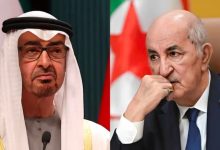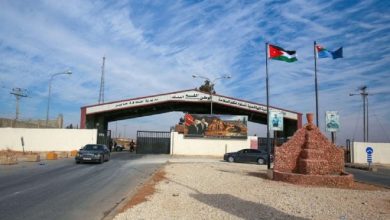UAE’s Scheme to Target Qatar and Turkey Abroad and Fund Extremism Against Muslim Communities in Europe – Revealed Documents

In a new scandal involving Abu Dhabi and the UAE’s Crown Prince Sheikh Mohammed bin Zayed, documents have exposed UAE’s funding of an inciting campaign promoting extremism against Muslim communities in Europe. The campaign propagates discriminatory allegations against Muslims and supports anti-Muslim legislation under the guise of defending liberal values.
European organization “The Bridge Initiative” revealed in a translated report by the “European Microscope for Middle East Issues” that the “Stop Extremism” campaign has been consistently receiving financial support from the UAE. The campaign organizers have deliberately concealed their budget and avoided legal declarations.
According to the organization, the “Stop Extremism” campaign claims to seek the establishment of a joint European Union (EU) watchlist for individuals and organizations categorized as “extremist.” The campaign was officially registered by the European Commission in June 2017, with the goal of aligning with EU directives to combat and prevent extremism.
The initiative’s founders include Austrian lawyer Sebastian Reimer, German lawyer and author Seran Atisch, and former member of the Austrian National Council, Efgani Dönmez. The initiative’s initial funding came from German author Seran Atisch and former Austrian MP Efgani Dönmez, each contributing 10,000 euros.

The legal representatives for the association are Walter Schnauder and Peter Windzor. Both have never publicly appeared for the initiative. Schnauder is a former political official in the ÖVP party and has been a political trainer for ÖVP in Upper Austria since 2003.
The “Stop Extremism” campaign supports five main demands:
- Definition of “extremism” on the European level to enable the implementation of shared legal measures and address any gaps.
- Publication of a “warning list and cooperation at the European level” for authorities throughout Europe to ensure continuous monitoring of individuals classified as “extremist.”
- Halt external funding, claiming that extremists endangering society cannot be funded from abroad. The campaign points out substantial annual funds flowing to Islamic organizations in Europe, especially from countries like Qatar and Turkey.
- Cease promotion, alleging that extremists infiltrate society through various means. The campaign proposes preventing the spread of extremist political and religious content in schools, kindergartens, administrative bodies, courts, and most importantly, on social media platforms like Facebook.
- Bestow an “extremism-free” label to identify organizations and companies across Europe that support our basic European values and rights.
In October 2017, during the Austrian national elections, the “Der Standard” newspaper reported that while Dönmez officially registered the campaign’s budget at 20,000 euros, leaks indicated much higher actual funds circulating.
Dönmez revealed that the individual responsible for the initiative’s financial affairs was Ingo F., a political scientist who founded the Austrian Society for Political Analysis in 2013. He previously worked at Abu Dhabi University and currently advises the government of the UAE.
The leaks also indicated that the campaign received 117,000 euros from the Austrian Society for Political Analysis as part of its 241,000-euro budget. These financial ties support claims by the weekly magazine “Profil” editor-in-chief that the UAE could be involved in funding the “Stop Extremism” campaign.
The initiative’s financial connections further substantiate allegations made by “Profil” that the UAE might be involved in funding the “Stop Extremism” campaign, which seeks to incite against Turkey, Qatar, and the Muslim Brotherhood.
The leaked communications show repeated instances of incitement against Turkey and Qatar. For example, Dönmez repeatedly insulted Turkey and Qatar in interviews. He also promised to utilize his political contacts to lodge complaints on behalf of the initiative.
The initiative called for a public hearing in March 2019 by the European Economic and Social Committee (EESC) to provide a platform at the EU level for presenting their initiative’s objectives and concerns regarding extremism.





